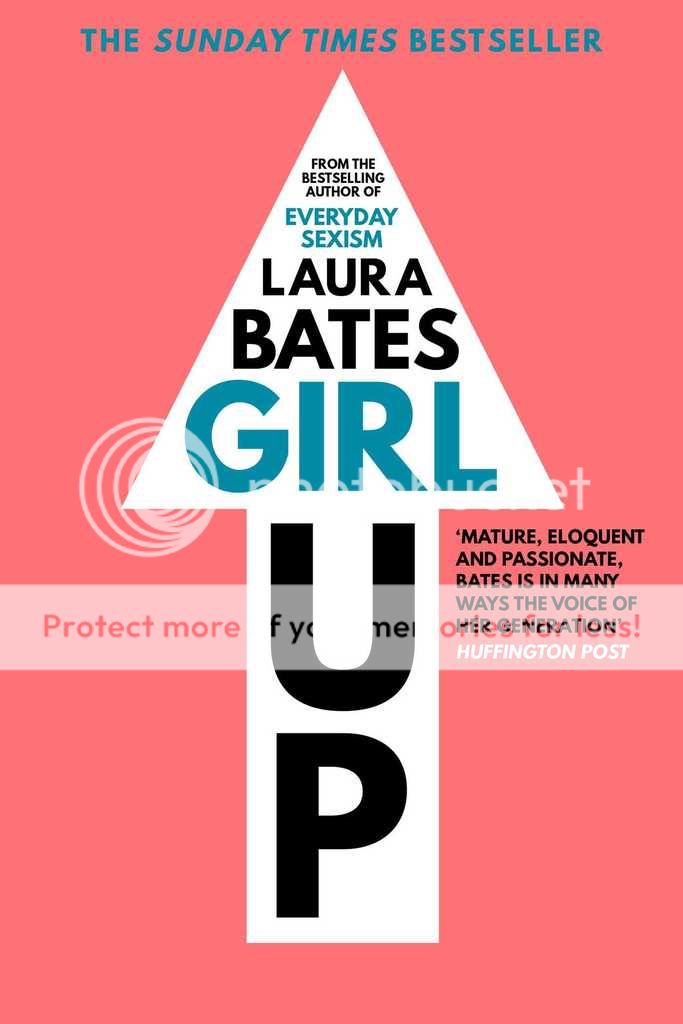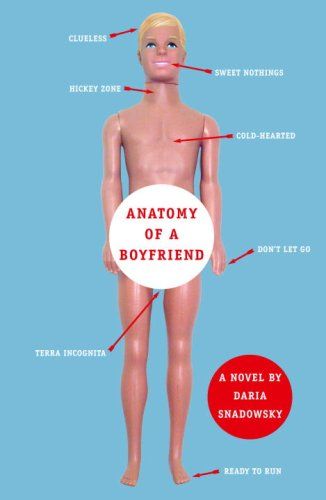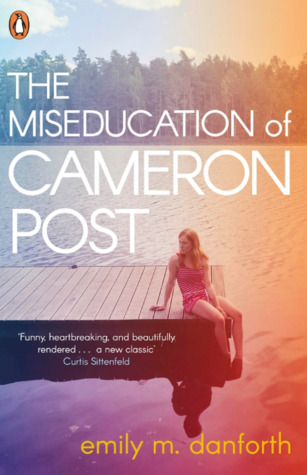
YA does a fantastic job of covering and exploring difficult and sensitive topics. There are so many books that are really powerful and incredibly important, to the point where I think they should be compulsory reading in schools. Today, I thought I would discuss with you those YA novels/non-fiction books I believe should be compulsory reading in some capacity, probably in PSHE lessons. Click on the covers to be taken to their page on Goodreads.
Trigger Warning: This discussion will discuss racism, police brutality, rape, rape culture, victim blaming, homophobia, and bisexual erasure.
ETA: Although I gave trigger warnings above, and so understand that a number of these books could be triggering for some people, making some of these books required reading would probably be really harmful to some teens. So instead of making them required reading, I'm now saying these books should be studied in school with teens who feel they would be ok reading them.

My review.
The Hate U Give is a really hard hitting books that looks at racism and police brutality. It's such an incredible read. This book isn't only important for the light it shines on police brutality, but also racism in other forms, and just how it affects Black Peoples lives - how racism can leave Black people with very few choices. I really think this book will open the eyes of white people, as well as providing representation to Black girls, which is why I think it should be compulsory reading. It's so important, and think it could change for the future.
Other books that deal with police brutality that are either on my TBR or on my wishlist are below.





Asking For It by Louise O'Neill, What We Saw by Aaron Hartzler and I Stop Somewhere by T. E. Carter



My review of Asking For It. / My review of I Stop Somewhere. / My review of What We Saw.
Asking For It, I Stop Somewhere and What We Saw are books I think should be read around the same time. They all deal with rape and rape culture, but from different perspectives.
Asking For It is from the perspective of Emma before, during and after she has been gang raped, and shows how rape culture affects survivors.
I Stop Somewhere is from the perspective of a Ellie, who was gang raped and murdered by her boyfriend and his brother, whose ghost now haunts the abandoned house she was murdered in, and is forced to watch the two continue to rape other young women. It follows what happens when one of those young women steps forward to report what happened to her, the investigation that follows, whether justice will be had, and whether Ellie's body will be found, and what happened to her discovered.
What We Saw is from the perspective of Kate, who is neither the survivor or the accused, but was at the party the night another girl, Stacey, was raped. This book is so incredibly important because through Kate, we get to see what the survivor doesn't - the victim blaming and the rape culture that abounds after an allegation.
Each of these books is seriously hard hitting and deeply affecting. They are all very difficult reads, but they are so bloody important. These books need to be read by all teenagers, so they can see how rape affects survivors, what rape culture and victim blaming look like and how they affect the survivor, and the issue of consent. These books should be read, studied, discussed in a classroom environment, so they can be understood and, hopefully, have things change in the future.


My review of The Nowhere Girls. / My review of Moxie.
The Nowhere Girls and Moxie are two incredible books that show how powerful and incredible it can be when young women stand together and support each other in the face of sexism and the patriarchy.
The Nowhere Girls follows Grace, Rosina and Erin as they get together to fight for justice for the gang rape of Lucy, who used to live in Grace's house, and was pretty much kicked out of town. They set up meetings to involve other women who are possible survivors or just people who want to help get justice. Mate, this book made me so angry, but it was also so powerful and so empowering to see these young women get together, support each other, and fight for what's right like they do.
Moxie follows Vivian Carter who starts her own anonymous Riot Grrl zine in order to fight back against the sexism prevalent at her school. She organises meetings, where young girls get together to discuss and share how the sexism they experience affects them, and just be heard and understood, and plan and strategise ways in which they can try and combat the rampant sexism and create change.
These two books are similar in that they bring groups of young women together to fight for what they believe in, and they're so empowering. They teach about sexism, the patriarchy, and feminism, and I think, if they were taught in schools, they could really help make such a difference. The boys will understand what sexism is and why it's so screwed up, and hopefully prevent them from being sexist, and maybe help bring about another generation of feminists - of all genders - who will fight for equality.

My review of Only Ever Yours.
Only Ever Yours is another feminist story that takes the sexism that is prevalent today, exaggerates it to make a dystopian world, but one that is totally believable, and shine a light on just how terrible things are.
In a world where female foetuses no longer survive to birth, girls are now genetically engineered. And if you're going to genetically engineer them, why not make them as beautiful as possible? And why not put them all in a school to teach how best to please men, how to always make sure they are beautiful, teach them always to be in competition with each other to be the very best? Women in this world have three options: they can become a companion (a wife and mother) to wealthy young men, they can become a concubine (prostitute - but one who doesn't get paid), or a chastity (a nun-like teacher at the school, who is forced to have a hysterectomy). But it's the men who choose what they women will become after weeks of meetings with them, and constant competition between the girls. The girls are encouraged not to each too much, because being fat isn't beautiful, but if they do, there's the vomitorium where they can go and throw up. They are encouraged to point out each other's flaws, where a girl will stand at the front of class in her underwear, and the other girls will draw red circles onto her skin around her flaws. They are taught to not have opinions, to never disagree, and to never say no.
Only Ever Yours should be compulsory reading in schools because it mirrors, exaggeratedly, our own society, and the readers will recognise elements of the book from our own world. If they are taught to examine and explore what this book is trying to say, it could make those readers - of all genders - aware of what society is trying to force onto women, or force women to be, who may then perhaps challenge that.

My review of Girl Up.
The only non-fiction title on this list, Girl Up is by the brain behind Everyday Sexism. This book is almost a growing-up guide for girls with a heavy slant towards how sexist our world is, and how to challenge it. Even though it's kind of like a growing-up guide, I think it's important for both all genders to read and think about, to challenge the ideas society has given them on who and what young girls and women should be.

My review of Anatomy of a Boyfriend.
Anatomy of a Boyfriend is an incredible book that shows Dominique's relationship with her boyfriend from beginning to end. It's also extremely sex positive, shows realistic sex, with all it's messy, embarrassing, and not necessarily enjoyable parts, and teaches a lot about safe sex and protection. It's incredible! I, as an adult, learnt things from this book I didn't know.
I would also recommend it's follow up, Anatomy of a Single Girl, where Dominique is now single, but still discovering and enjoying her sexuality through a no-strings relationship with another guy. In this book, she discovers what she actually likes sexually, how there's no shame in wanting and enjoying sex, and that it's not wrong to have casual sex. It also includes an incredible scene where Dominique visits a gynaecologist to get herself checked out before having sex with someone knew. My review of Anatomy of a Single Girl.
These books are so fantastic, very real, and incredibly sex positive, and I do think they should be read in schools.


My review of Cherry. / My review of Firsts.
I want to look at a few more sex positive books, but I don't think these would work in a classroom, but I think they should be read and discussed, so maybe in a school library book club?
The first two books are very sex positive, but they also have flawed elements to them, which is also part of the reason I think they should be read, to discuss these problems with a teacher or librarian in a book club environment, to ask questions to get the readers thinking about their flaws.
Cherry is about a group of friends who decide to make a pact to lose their virginity by the end of the year, before they graduate. Now the pact itself, to have sex so they're simply not virgins any more, I feel is problematic. There's nothing wrong with not having had sex, and there's no rush to lose your virginity. Although it makes for an interesting story, I think this element of the story has it issues. And in some ways, it is discussed through the book, but it's not something I'm on board with. However, what what follows are four friends having very different, sex positive experiences. Not everything works out for everyone the way they planned. One discovers that she isn't straight, but doesn't like labels, and the book features on-the-page sex between two young women, and also discusses what constitutes as sex between two women. They all have very different journeys, for want of a better word. It's a comedy, it's hilarious in places, and there are romances along the way, but as well as showing sex in a sex positive way, it also has these group of friends who have supportive, real discussions about sex that is just wonderful to see.
In Firsts, after a bad first time, Mercedes now provides a "service", where she will have sex with guys in relationships who are virgins, to give them guidance on how to make their girlfriend's first times enjoyable. The book does discuss how this is a bad idea and why, but at the same time, it's very sex positive. Mercedes has a no-strings relationship with a guy she has very enjoyable sex with (who actually wants to be her boyfriend, but due to her bad experience, doesn't want a relationship), and she owns her sexuality. However, she does end up having to deal with sex-shaming, which I think is really important to see and discuss. At the same time, it does have an issue when it comes to consent. When Mercedes is having sex with a guy, she asks what he would say to his girlfriend. He responds saying he would tell her she's beautiful, and ask if he could touch her boobs. Mercedes tells him that he should always tell her she's beautiful, but he should never ask to do something. Instead, he should be bold, because confidence should be faked until he is confident. However, consent should always be asked for and given. I think this one small part of the story could lead to confusion around consent and sexual assault, and I do think it should be discussed in a book club environment.


My review of Cut Both Ways. My review of The Miseducation of Cameron Post.
Now these two books are both feature on-the-page sex between people of the same sex, which I think is hugely important for those who are attracted to people of sex. But both also deal with topics that are important to discuss, I feel.
Cut Both Ways is about Will, who is bisexual, but doesn't realise it, and doesn't understand why, when he's into girls, he ends up kissing his best friend, Angus (who is gay), when they're drunk, and doesn't hate it. When he meets Brandy, who is beautiful and sexy and everything he could want in a girl, he knows he's not gay... so why does he keep having sex with Angus? This book is all about the confusion of sexuality when you don't understand your sexuality. Never once in the book, until the author's note, is bisexauality even mentioned. It's like, for Will, it doesn't exist or he's never heard of it. In his mind, you're gay or you're straight, so he is completely confused, when he's really into both of them. There is the stereotype that bisexual people are greedy and cheat a lot, so this element of the story could be discussed, as well as the bisexual erasure and the sex positivity, in a book club.
The Miseducation of Cameron Post is a long, complicated book about Cameron's coming to terms with her sexuality, and how she is sent to a religious conversion camp when her very religious aunt, who is her guardian, finds out. Cameron has always been conflicted about her sexuality when on the night she first kisses a girl, her parents die. She's always kind of believed it was karma for her doing something "wrong". But she can't fight her attraction to girls, and over the course of her story, has girls she will make out with, but not much more. But when she meets Coley, she falls hard. They form a close and intense friendship, though Coley works out that Cam is into her. Even though Coley has a boyfriend, slowly but surely things change between them. But when Cam's aunt Ruth finds out, Cam is sent off to be "fixed". From then on, the story is set at a school that is all about trying to lead it's "students" back to god and away from their abnormality. Lots of homophobia. But a lot of self-discovery and self-acceptance. A really incredible and important novel, with lots to discuss in a book club environment.
Unfortunately, I don't know of any YA novels with trans or non-binary protagonists that feature sex-positive, on-the-page sex, so if you have any recommendations, I would love to hear them.
What do you think of my list? Have you read any of these? If so, what did you think? Are there any YA books you think should be compulsory reading in schools?
This discussion was inspired by this week's Top Ten Tuesday topic, which is Back to School/Learning Freebie.
If you enjoyed this post, feel free to follow me on:
Bloglovin' | Twitter | Instagram









The only one here I've read is Dear Martin but yes, I totally agree!
ReplyDeleteI still need to read Dear Martin, but it's on my TBR! It sounds so good!
DeleteThis is an amazing list and I love how well thought out your reasonings are.
ReplyDeleteHere is our Top Ten Tuesday. Thank you!
Thank you! :)
DeleteI like the idea of more modern books and books written specifically for teens being part of the required school reading. I think educators need to consider their population, when selecting books and topics that are important to those students too.
ReplyDeleteRight? These stories tackle important topics and themes that are so relevant to teens in today's world. I know these books would probably make it to the English syllabus, but if they were discussed in PSHE, I think they would make all the difference.
DeleteThere are good choices here, although I'm not sure we should make some of them required reading. Some kids have had traumatic experiences and might have difficulty with them.
ReplyDeleteBut I do agree that people should read more books dealing with these sorts of issues, if they're comfortable with it.
Oh my god, that is so true! It didn't occur to me. I'll edit my post to reflect it.
DeleteI just think there need to be some big conversations surrounding consent, and I think these books would be great conversation starters, and a ways for people to see the affects of rape culture. But they can of course be very triggering to some, so I will fix my post.
I hadn't heard of The Miseducation of Cameron Post until it was made into a movie (just recently). That put it on my radar, and I definitely think I'll check both the book and the movie out.
ReplyDeleteNicole @ Feed Your Fiction Addiction
The Miseducation of Cameron Post is so good! From what I've seen of the trailer, the movie only shows half the book, but I can understand that. It would be a seriously long movie otherwise. But it looks really good!
DeleteWow, I thought I had a lot of leeway in my required in high school but reading this list makes me realize how lacking the required reading was in contemporary titles. Especially in the past couple of years, there have been so many books published that would be excellent for educators to work through with teens.
ReplyDelete